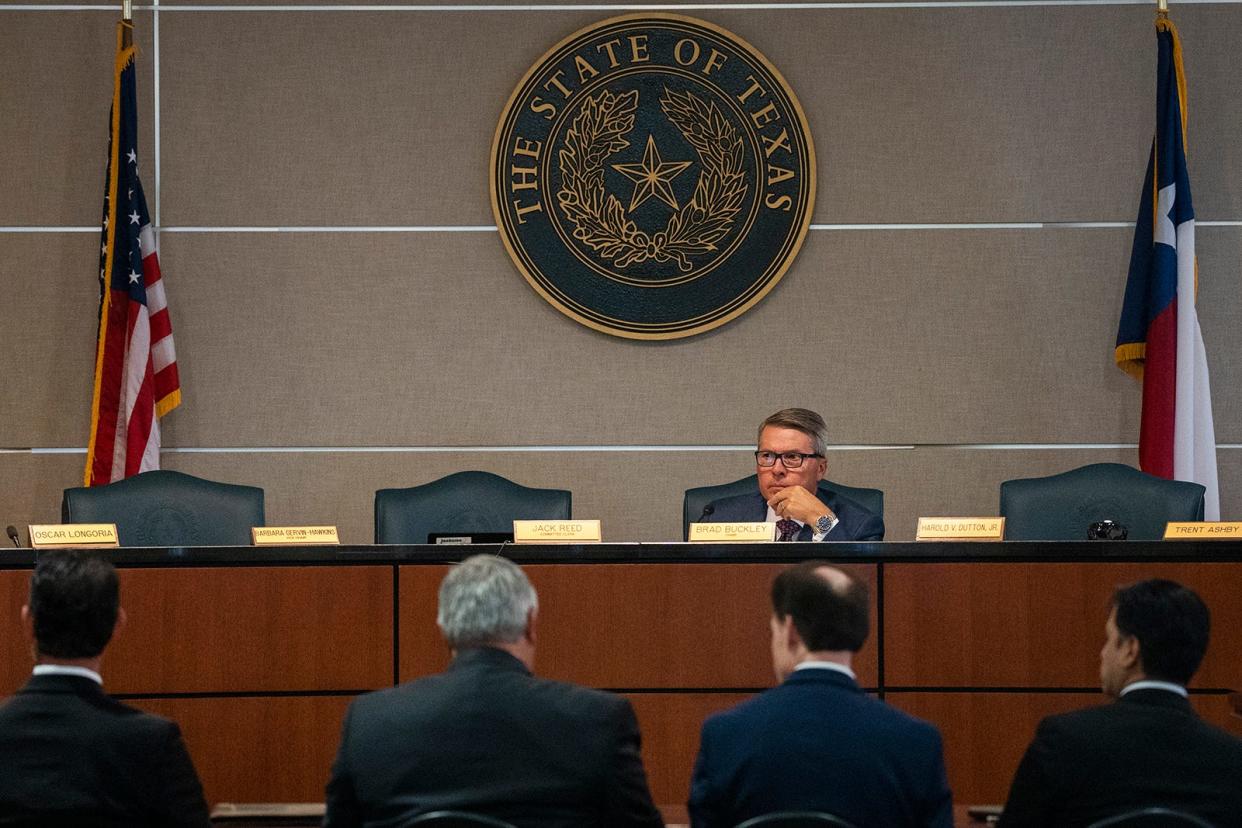Texas House panel recommends more funding, teacher resources to boost public education

- Oops!Something went wrong.Please try again later.
A special Texas House committee focused on education has pinned down about 30 recommendations to improve public education in the state, including boosting funding for students and teachers, increasing literacy resources and revamping accountability measures, according to a report the panel released Friday.
The committee's findings, which were highly anticipated by education advocates, precede an expected education-focused special legislative session this fall and comes after a regular session in which lawmakers' priorities fell victim to squabbles and political maneuvering.
Rather than taking a stance on school choice — the most divisive education issue in the Legislature this year — the committee's 37-page report offers recommendations for a plan “if the Legislature chooses to enact” such a program. School choice, also referred to as education savings accounts or vouchers, would allow parents to access public money to fund part or all of a child’s private education.
If a school choice program is approved in Texas, it should “clearly outline student eligibility,” “prioritize high need students” and “include appropriate safeguards to ensure fiscal responsibility,” the committee states in its report.
It also suggested setting up a scholarship program to be funded by the private sector, and not using state money, by offering insurance tax credits to donors.
The committee of 15 House members released its report after hearing two lengthy days of testimony in mid-July about the problems public education in Texas is facing. Lawmakers listened for hours as teachers, school administrators and policy advocates laid out their proposals to improve education.
More: Texas House panel signals student success, school choice to top education special session
The lengthy, sometimes circuitous conversations followed the regular legislative session that wrapped up May 29 and left many education advocates dissatisfied and frustrated. Many teachers and superintendents berated lawmakers after political fights roadblocked any significant state-funded raises for educators or increases to the state’s per-pupil funding allotment.
At the same time, Gov. Greg Abbott and school choice proponents were disappointed that lawmakers didn’t pass an education savings account program, a form of school choice in which the state pays for part or all of a child’s private school education. Democrats and many rural Republicans staunchly opposed the program out of concern it would bleed resources from public schools.
However, the bulk of the report focused on issues not related to school choice, such as the accountability system that measures student achievement and persistent gaps in student outcomes in the wake of learning disruptions wrought by the COVID-19 pandemic.
The committee's report proposes that the Texas Education Agency study better ways to measure and define truant students and increase resources and tracking of literacy, particularly among economically disadvantaged students.
The report also proposes grants for local districts to develop their own accountability systems and asks for reforms so parents “actually understand which and how much” of the state learning requirements their child understands.
While Abbott has been relatively quiet on school choice this summer, he expended significant political capital last fall and during the session, even touring the state, to promote school choice legislation.
Several lawmakers attached their own comments to the report, including Rep. Harold Dutton, D-Houston, who said he “must exclude support for any recommendations with underlying efforts to create a voucher system.”
Rep. Barbara Gervin-Hawkins, D-San Antonio, insisted that a school choice program should include accountability for finances and student outcomes.
“Alternatively, a school choice program could begin as a pilot program, created with separate funds from public schools and a hold harmless provision for any loss of funds that public schools incur,” Gervin-Hawkins wrote.
Rep. Gary VanDeaver, R-New Boston, worried that school choice “opened the door for public tax dollars to go to these private enterprises without accompanying plans ensuring transparency and accountability.”
Abbott earlier this year signaled he would call a special session to focus on education issues, specifically with the goal of passing school choice legislation.
Though Abbott hasn’t announced a date for the special session, education policy analysts expect it to begin in late September or October.
This article originally appeared on Austin American-Statesman: Texas education: House panel recommends higher investments in K-12

